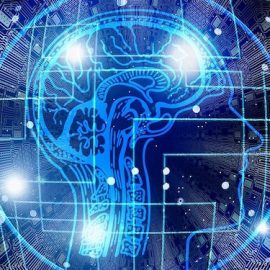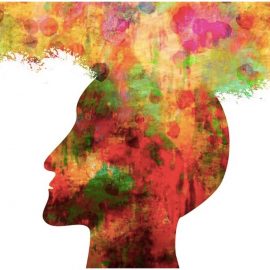

This article is an excerpt from the Shortform book guide to "How to Lead When You're Not in Charge" by Clay Scroggins. Shortform has the world's best summaries and analyses of books you should be reading.
Like this article? Sign up for a free trial here.
Do people look up to you at work? What type of identity do you have as a leader?
To be a role model to others, you need to have a firm grasp of what your own beliefs and values are. Clay Scroggins says that understanding this connection between identity and leadership can help you identify your strengths and weaknesses.
Continue reading to discover what your leadership identity is.
Finding Your Leadership Identity
Identity and leadership go hand in hand. Scroggins defines identity as the core beliefs you hold about yourself. These beliefs are shaped by four main factors:
- The people you’re surrounded by, both now and in the past
- Your intrinsic qualities, such as your talents, physical traits, and emotional state
- The values and beliefs that you consider most important
- Your sense of purpose, or why you believe you’re alive
These beliefs shape your behavior in every aspect of your life, including how you act as a leader. If you have a strong, clear sense of identity, you’ll understand your own strengths and limitations, so you can confidently make decisions as a leader. In contrast, if you have a weak sense of identity, you may overemphasize your strengths or weaknesses. If you overemphasize your strengths, you’ll become arrogant and may hide your mistakes so people keep viewing you positively, increasing the severity of the problem and your stress. If you overemphasize your weaknesses, you’ll be crippled by self-doubt and be less likely to take advantage of leadership opportunities because you fear failure.
(Shortform note: Above, we discussed ego—a sense of superiority where you overemphasize your strengths—and how it distracts you from completing tasks in favor of talking about yourself. Holiday says you can also be distracted by thinking about yourself too much. He agrees with Scroggins that this arrogance makes you too focused on defending the image of your greatness instead of completing your tasks. However, Holiday says egotistical thinking can also make you fear failure and stop you from taking action (which Scroggins attributes to overemphasizing weaknesses). Since you exaggerate your own greatness, you hold yourself to exaggerated standards, too, and you’re afraid to act in case you can’t meet them.)
| Another Perspective on Identity In Awaken the Giant Within, Tony Robbins explains that the beliefs you hold about yourself shape your behavior because you subconsciously strive to act in ways that reinforce your identity. So, it’s important to develop a positive identity that pushes you to be the person you want to be.Robbins says your identity develops subconsciously through your life experiences. While he agrees with Scroggins that the influence of people around you plays a large role in your identity, as well as “intrinsic” traits like your physical traits and emotions, their ideas of identity differ in some important ways. For instance, Robbins doesn’t include values or purpose in his discussion of things that shape your identity. Instead, he focuses on your behavior and other traits like your income, profession, and title. For Robbins, having a strong sense of identity is not about understanding your strengths and limitations to improve your leadership skills. Instead, it’s about aligning your behavior and your identity to improve your life. If you act in ways that are contrary to your identity, he says, you’ll experience an identity crisis and begin to question your own sense of self. This can cause internal confusion and distress. However, if you understand and adjust your identity in a positive way, you’ll know how to act in a way that aligns with your identity, avoiding crises and increasing your overall happiness and well-being. |
How to Lead Your Identity
While some elements of your identity are fixed—for instance, you can’t change the influence your family had on you as you grew up—you can control others. For instance, Scroggins says you should develop your sense of purpose throughout your life.
(Shortform note: Robbins says that your identity must continually change to reflect your evolving experiences and circumstances. Thus your identity as a whole is something you can—and should—develop throughout your life, not just a few aspects of it. In fact, Robbins says you can choose to define yourself based on the past, the present, or the future, which means you could potentially change how the “fixed” parts of your identity affect you, too. For instance, while you can’t change how your family treated you growing up, you can choose to focus on who you are now or who you want to be in the future instead of their past influence.)
We’ve arranged Scroggins’s advice for leading your identity into two steps:
1. Remember that God values and loves you for who you are, not what you’ve achieved. He knows all of your weaknesses, and he loves you anyway. When you accept that God’s love is unconditional, you can be bold and hold true to your ideals, instead of seeking approval from others or fearing failure. This step must be completed first, as your identity must be solidly rooted in God if you’re going to have the confidence to successfully complete the next step.
(Shortform note: in Everybody, Always, Bob Goff also says that focusing on unconditional love is essential to leading your identity in positive ways—to becoming the person God created you to be, as he puts it. However, Goff moves past remembering that God loves you unconditionally and says you must love others unconditionally, too. Specifically, you must offer everyone unconditional love, even if it’s difficult or the other person has done terrible things. Similar to Scroggins, Goff says the knowledge of God’s unconditional love for you can help you be brave and have the confidence to offer that same love to everyone else without fearing rejection.)
2. Determine whether the influences in your life—especially the people you surround yourself with—support your identity or degrade it. Then, pay attention to the positive influences and either limit or remove negative influences. For example, a friend who encourages you to live according to your values supports your identity, so you should heed their advice. A friend who encourages you to violate your values degrades your identity, so you should pay less attention to their opinion or, in serious cases, remove them from your life.
(Shortform note: Robbins says it’s important to be selective about the people you surround yourself with because other people’s identities can actually affect how you perceive your own. Specifically, he says that you’ll probably consider yourself to have the same identity traits as your friends. For instance, if you think of your friend as adventurous, you probably consider yourself adventurous, too. This suggests that being around people with negative traits could change your perception of your identity—and thus your behavior—for the worse. In this case, it may be better to remove negative influences entirely, instead of trying to limit their effect.)

———End of Preview———
Like what you just read? Read the rest of the world's best book summary and analysis of Clay Scroggins's "How to Lead When You're Not in Charge" at Shortform.
Here's what you'll find in our full How to Lead When You're Not in Charge summary:
- The risks of confusing authority with leadership
- Why you don’t need to be in a position of authority to be a leader
- How to lead your environment and even your superiors






